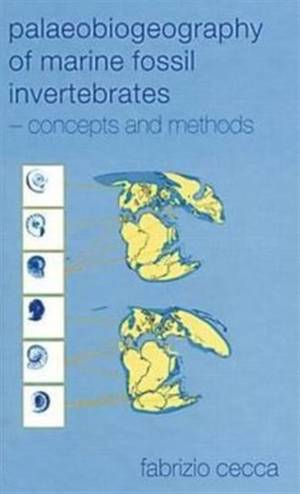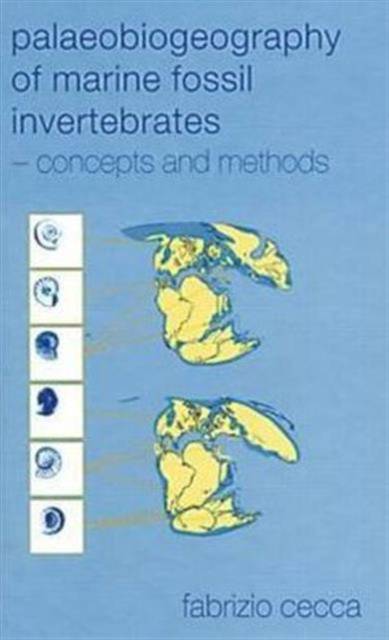
- Afhalen na 1 uur in een winkel met voorraad
- Gratis thuislevering in België vanaf € 30
- Ruim aanbod met 7 miljoen producten
- Afhalen na 1 uur in een winkel met voorraad
- Gratis thuislevering in België vanaf € 30
- Ruim aanbod met 7 miljoen producten
Zoeken
Palaeobiogeography of Marine Fossil Invertebrates
Concepts and Methods
Fabrizio Cecca
Hardcover | Engels
€ 168,95
+ 337 punten
Omschrijving
Sitting squarely at the interface between earth and life sciences, palaeobiogeographic information is scattered throughout many publications. Until now. Palaeobiogeography of Marine Fossil Invertebrates covers important theoretical concepts relating to palaeobiogeography together with descriptions of analytical methods.
Fabrizio Cecca discusses general biogeographical concepts and the factors influencing distributional patterns and provides case histories that illustrate the concepts covered. Cecca uses the palaeobiogeography of fossil organisms to generate hypotheses on continental drifting, past migration routes, palaeobiodiversity gradients, geographic barriers, palaeoclimatic and paleooceanographic conditions. He explores the biogeographical dimension of biodiversity through the analysis of existing latitudinal and longitudinal gradients of biodiversity and discusses the biodiversity/area relationship with particular reference to sea-level variations. Much of the material in the book has been drawn from the author's personal research and experience in ammonites and the Mesozoic pelagic biotas. To avoid lack of balance, he includes carefully selected case histories based on other fossil groups and geologic periods. The book is primarily for students and researchers of geology and palaeontology who whish to gain an understanding of palaeobiogeography, but will also be of interest to marine biologists concerned with the biogeographic aspects of palaeontology and evolution.Specificaties
Betrokkenen
- Auteur(s):
- Uitgeverij:
Inhoud
- Aantal bladzijden:
- 288
- Taal:
- Engels
Eigenschappen
- Productcode (EAN):
- 9780415287890
- Verschijningsdatum:
- 12/09/2002
- Uitvoering:
- Hardcover
- Formaat:
- Genaaid
- Afmetingen:
- 137 mm x 225 mm
- Gewicht:
- 444 g

Alleen bij Standaard Boekhandel
+ 337 punten op je klantenkaart van Standaard Boekhandel
Beoordelingen
We publiceren alleen reviews die voldoen aan de voorwaarden voor reviews. Bekijk onze voorwaarden voor reviews.











